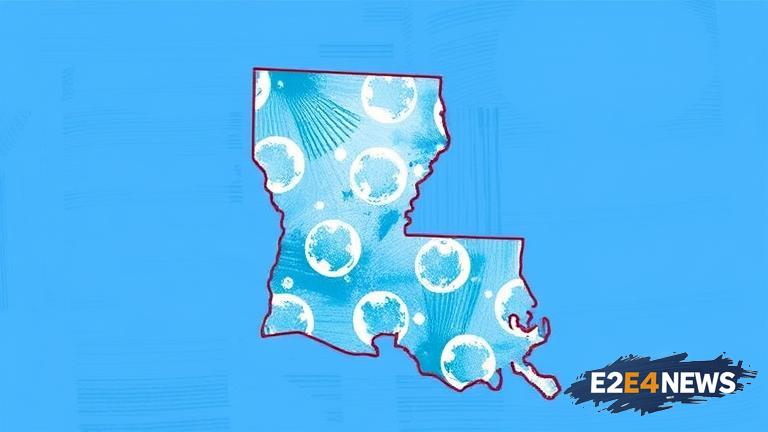In a move aimed at promoting healthier lifestyles, the state of Louisiana has implemented a waiver that prohibits the purchase of soda. This decision has been met with a mix of reactions, ranging from support from health advocates to criticism from those who believe it infringes upon personal freedom. The ban is part of a broader effort to combat obesity and related health issues, which are prevalent in the state. By restricting the purchase of sugary drinks, the government hopes to encourage residents to opt for healthier alternatives. However, opponents argue that such measures are overly restrictive and do not address the root causes of health problems. They also point out that banning soda may not be effective in reducing consumption, as individuals may find ways to circumvent the ban. On the other hand, supporters of the ban believe that it is a necessary step towards creating a healthier environment. They argue that the government has a responsibility to protect its citizens from harmful products, and that the ban on soda is a crucial part of this effort. The implementation of the ban has also raised questions about the role of government in regulating food choices. While some believe that the government should play a more active role in promoting healthy eating habits, others argue that such interventions are an overreach of authority. The debate surrounding the soda ban in Louisiana reflects a larger conversation about the balance between personal freedom and public health. As the state navigates the implications of this policy, it will be important to consider the potential consequences, both positive and negative. The ban may lead to a reduction in soda consumption, which could have positive effects on public health. However, it may also have unintended consequences, such as driving the sale of soda underground or leading to the development of black markets. Furthermore, the ban may disproportionately affect certain communities, particularly those with limited access to healthy food options. In these areas, the ban may exacerbate existing health disparities, rather than alleviating them. To mitigate these risks, it will be essential to implement the ban in a way that is fair, effective, and responsive to the needs of all communities. This may involve providing education and support to help individuals make healthier choices, as well as ensuring that healthy alternatives are accessible and affordable. Ultimately, the success of the soda ban in Louisiana will depend on its ability to promote meaningful change, while also respecting the rights and freedoms of its citizens. The policy has sparked a national conversation about the role of government in regulating food choices, and its outcomes will be closely watched by other states and countries. As the world grapples with the challenges of promoting public health, the example of Louisiana’s soda ban will serve as an important case study. It will provide valuable insights into the effectiveness of such interventions, and help to inform future policy decisions. In conclusion, the implementation of a soda ban in Louisiana is a complex issue, with both supporters and opponents presenting compelling arguments. While the ban has the potential to promote healthier lifestyles, it also raises important questions about the role of government in regulating food choices. As the state moves forward with this policy, it will be essential to carefully consider the potential consequences, and to work towards creating a healthier, more equitable environment for all citizens.





